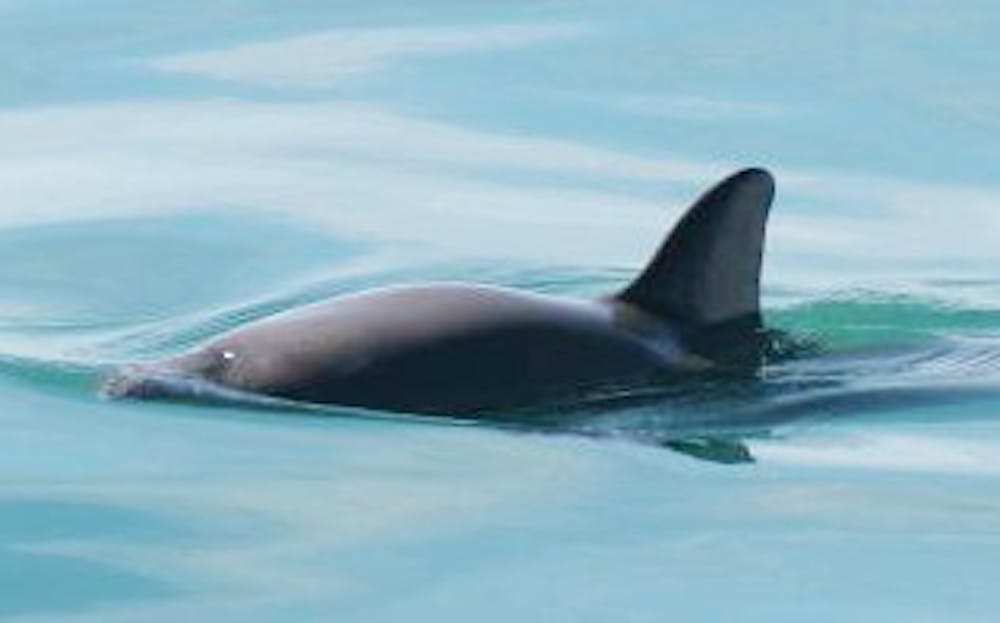If you have never heard of a "vaquita," it's probably because there are fewer than 60 left in the world.
The vaquita—a species of porpoise named after the Spanish word for "little cow"—is the most endangered marine mammal on the planet. Andrew Read, director of the Duke Marine Lab and Stephen A. Toth professor of marine biology, will be taking part in newly-announced international efforts to protect the extremely rare animals.
As part of the emergency rescue plan, the Mexican government will collaborate with marine mammal experts, including Read, to capture some of the remaining vaquitas and relocate them to temporary sanctuaries, while working to combat the illegal fishing that contributes to the animals' decline. The U.S. Navy will also deploy its trained dolphins to help track down the shy porpoises.
“I’ve been working with the government of Mexico trying to find solutions to the problems facing the vaquita," Read said. "Because I have worked on the issue of fisheries interacting with marine mammals, which is the main problem facing the vaquita, when we started talking about potential conservation strategies, I naturally progressed into a role."
Vaquitas have become the world’s most endangered species of cetacean—a group of aquatic mammals that includes whales and dolphins—after the previous most endangered species, China's baiji dolphin, was declared extinct in 2006. The vaquitas are often caught in nets and killed by poachers who intend to catch and illegally sell the swim bladders of an endangered fish, called the totoaba, which are used in Chinese medicine and cooking.
Read will work at the site where the last wild vaquitas remain—the town of San Felipe in the Mexican state of Baja California. He added that he hopes to begin the capture phase of the operation this spring.
Before attempting to capture the porpoises, Read explained that intense preparation is required—including arranging pens to hold the animals in.
“The pen will be in the Gulf of California within Mexico, which is incredibly important," he said. "This is an operation headed and supported by the nation’s government officials and conservationists. We are helping out, but this is largely a Mexican effort to protect Mexican porpoises."
Trainers, veterinarians and marine animal health specialists are part of the recovery team in place if the animals are successfully captured—which will be no small feat, considering they are notoriously elusive animals.
“Very little is known about these animals—they were only described by biologists for the first time in 1968," Read said. "We would like to know more about the vaquita’s basic physiology and behavior that we could use in conservation efforts and improve our strategy and the likelihood of saving the species.”
Another challenge associated with efforts to save the endangered animal is fundraising. Because no member of the species has ever been held in captivity before, the success of the efforts is uncertain, and asking donors to step up has been difficult, he explained.
“So far everything is very experimental, so we do not yet know if we will be successful in capturing the animals," Read said. "Even if we do capture the vaquitas, we are not certain how they will respond."
Get The Chronicle straight to your inbox
Signup for our weekly newsletter. Cancel at any time.

